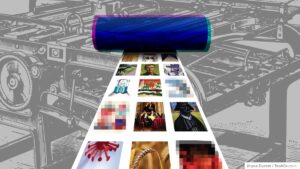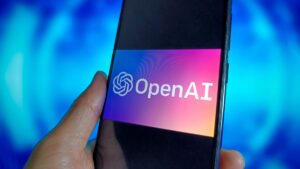Sam Altman and the Creative Community: A Confrontation

The Impact of Copyright Lawsuits on AI Companies
The advancement of Artificial Intelligence (AI) technologies has revolutionized various sectors, but it has also raised significant legal concerns. Recently, major companies like OpenAI and Microsoft have found themselves at the center of copyright lawsuits from authors and other creative entities. These issues highlight the ongoing tension between innovation and intellectual property rights.
Understanding the Copyright Controversies
What Are the Current Lawsuits About?
Several notable lawsuits have been combined in a New York court, primarily focusing on accusations against AI entities like OpenAI for violating copyright laws. Authors argue that their works have been unlawfully used to train these AI models without consent, which raises fundamental questions about the ownership of creative content in the digital age.
Key points regarding the lawsuits include:
- Claims of Unauthorized Use: Authors allege that companies like OpenAI have utilized their texts to develop generative models, thereby infringing on their copyright.
- Consolidation in Court: Multiple legal actions targeting OpenAI and its affiliations, including Microsoft, have been merged into one case to streamline proceedings.
- Legal Stakes: The outcomes could set crucial precedents regarding how copyright laws apply to AI technologies, impacting both creators and technology companies.
The Legal Framework
How Copyright Law Applies to AI
Copyright law is designed to protect the rights of creators over their original works. However, the swift evolution of technology challenges traditional interpretations of these laws. Here are some essential points:
- Originality Requirement: To qualify for copyright protection, a work must be original. This raises questions when AI generates content, as it often draws from a vast pool of pre-existing material.
- Fair Use Doctrine: Some AI companies argue that their use of copyrighted material falls under "fair use." This legal concept allows for limited use of copyrighted materials without permission, especially for commentary or educational purposes. However, determining what constitutes fair use in the context of AI remains complex.
The Role of Judges and Legal Opinions
Recent Court Developments
Recent developments in court have spotlighted the ongoing conflict between AI companies and the creative community. In one case, a judge criticized OpenAI’s defense strategy, labeling it a "straw man" argument. This indicates that judicial scrutiny is intensifying, and courts may take a more active role in interpreting how copyright laws apply to iterations of AI.
Some notable updates from the courtroom include:
- Rulings on AI Training Practices: Courts are debating whether companies can use existing texts to train their models without infringing on copyright. The implications of these rulings could impact not just OpenAI, but the entire AI industry.
- Potential for Precedents: Legal outcomes could establish important precedents regarding how copyright laws are enforced in the age of AI, potentially leading to new regulations and standards for AI development.
Implications for the Creative Community and Technology Companies
Balancing Innovation and Protection
The outcome of these lawsuits can have far-reaching implications for both authors and AI companies. For content creators, the suits might lead to new protections and a clearer framework about how their works can be used. Conversely, tech companies may face stricter regulations that could affect their operations and the evolution of AI technologies.
Key considerations for both sides include:
- Employment of Ethical Practices: Companies may need to adopt more transparent practices regarding how they utilize existing works.
- Negotiation of Licensing Agreements: There might be increased dialogue about licensing agreements that could allow tech companies to use creative works legally while compensating authors.
- Potential for New Legislation: With the growing concerns around copyright in the digital era, there could be new legislative efforts to address the intersection of IP rights and technological advancements.
Final Thoughts
The ongoing legal battles surrounding copyright and AI technologies reflect a critical juncture in understanding intellectual property in the context of modern advancements. As these cases progress through court, both the creative community and tech companies must navigate a rapidly evolving landscape that challenges traditional notions of ownership and innovation.





